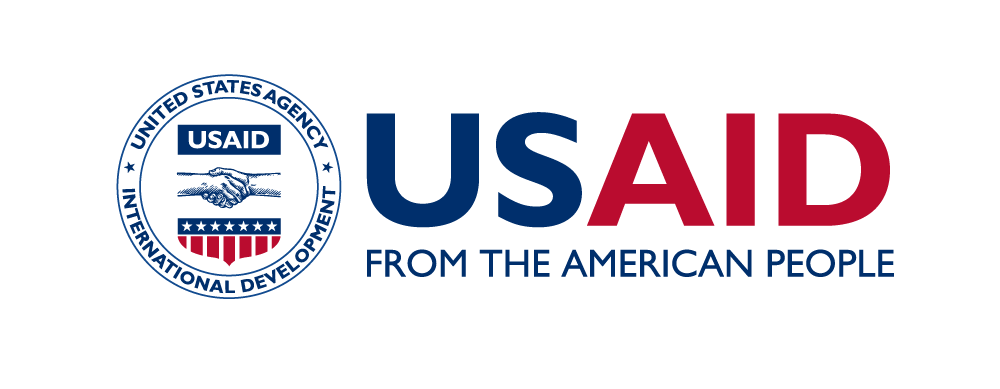
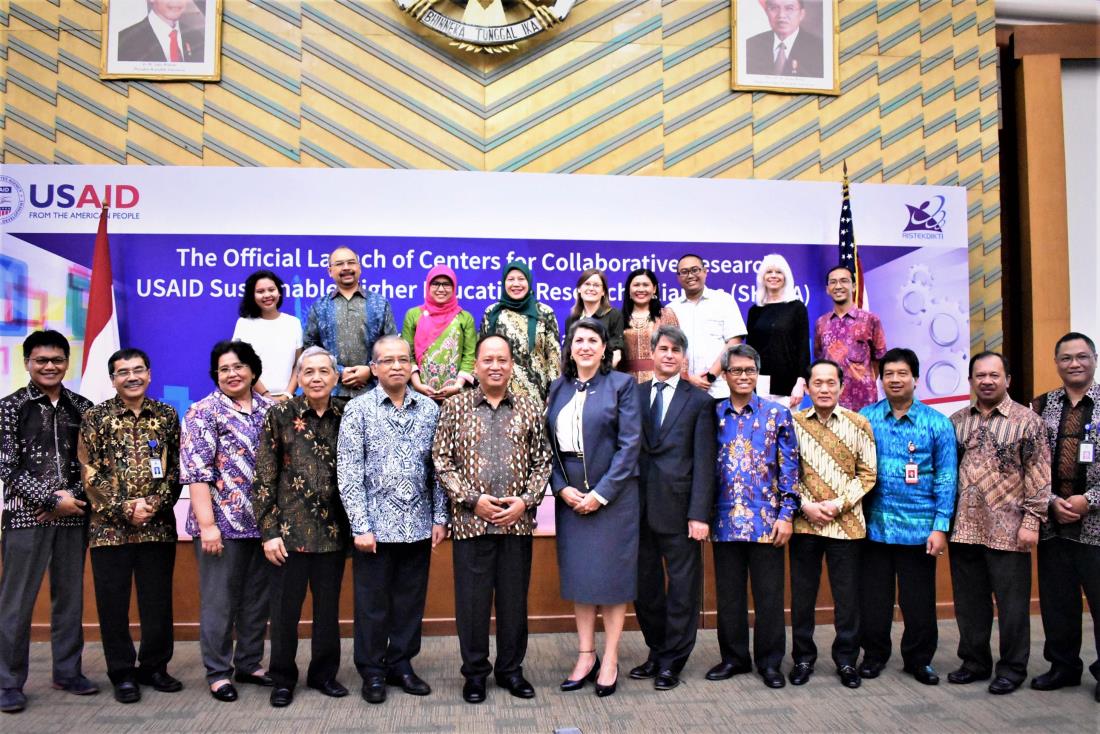
Centers for Collaborative Research
In 2017, the USAID SHERA program launched five Centers for Collaborative Research (CCRs), each focusing on a different priority research area for Indonesia’s development, as detailed below. As of the program’s closure in 2021, each CCR is continuing its work in various ways. Some have transitioned to new formats, while others are expanding the structure they established under SHERA. All, however, are primed to continue their research and partnerships in the years to come.
Environment, Energy, and Maritime Sciences Research
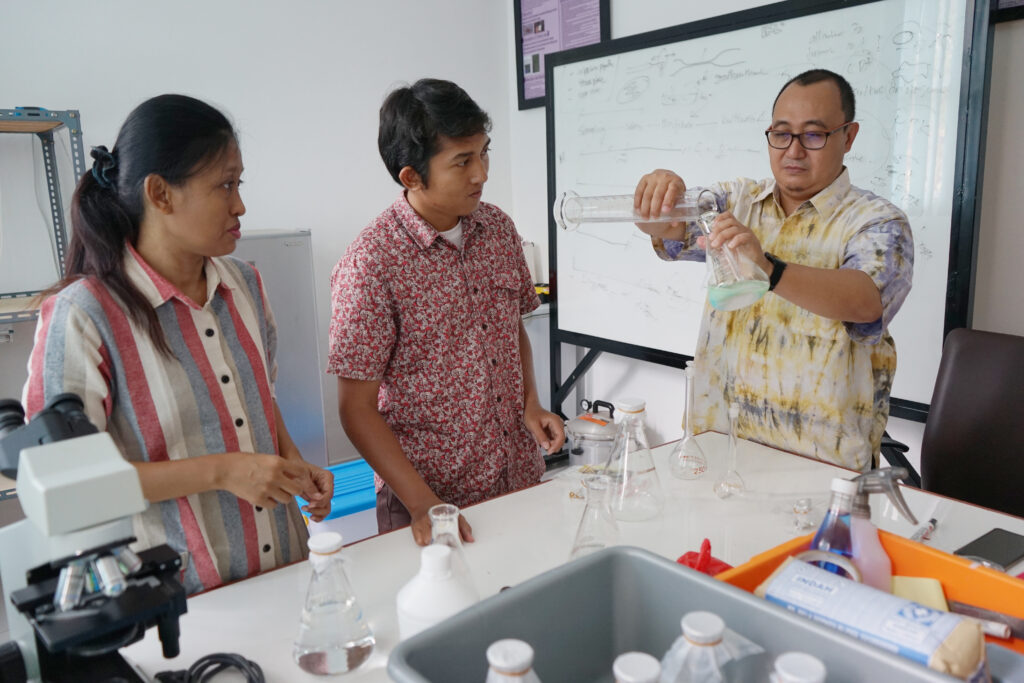
Center for the development of a Sustainable Region (CDSR)
CDSR, led by Universitas Gadjah Mada, is a multidisciplinary collaboration with the goal of ensuring energy efficiency and independence within Indonesia. CDSR’s activities support Indonesia to maximize its renewable energy sources through developing a hybrid energy system and prototypes to support near zero-energy buildings in tropical urban areas, building the capacity of the local renewable energy industry, and creating a network of renewable energy stakeholders in Indonesia.
Food Security and Self-Sufficiency
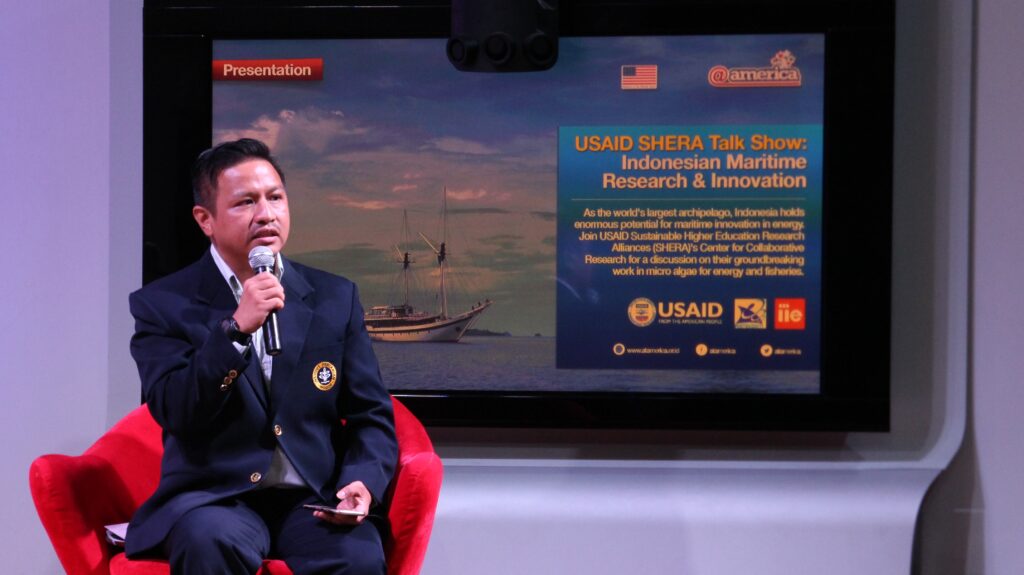
Animal Biotechnology and Coral Reef Fisheries (ANBIOCORE)
ANBIOCORE, led by Institut Pertanian Bogor, seeks to increase Indonesia’s food security and self-sufficiency by engaging fisheries, animal, and veterinary sciences and linking biotechnology for sustainable food production through innovative research and high-quality education. ANBIOCORE’s goal is to increase the country’s food security and self-sufficiency by engaging fisheries, animal, and veterinary sciences and linking biotechnology for sustainable food production through innovative research and high-quality education. This will enable the private sector and national and provincial governments to better plan for present and future food production systems on land and in the ocean.
Innovative Technologies
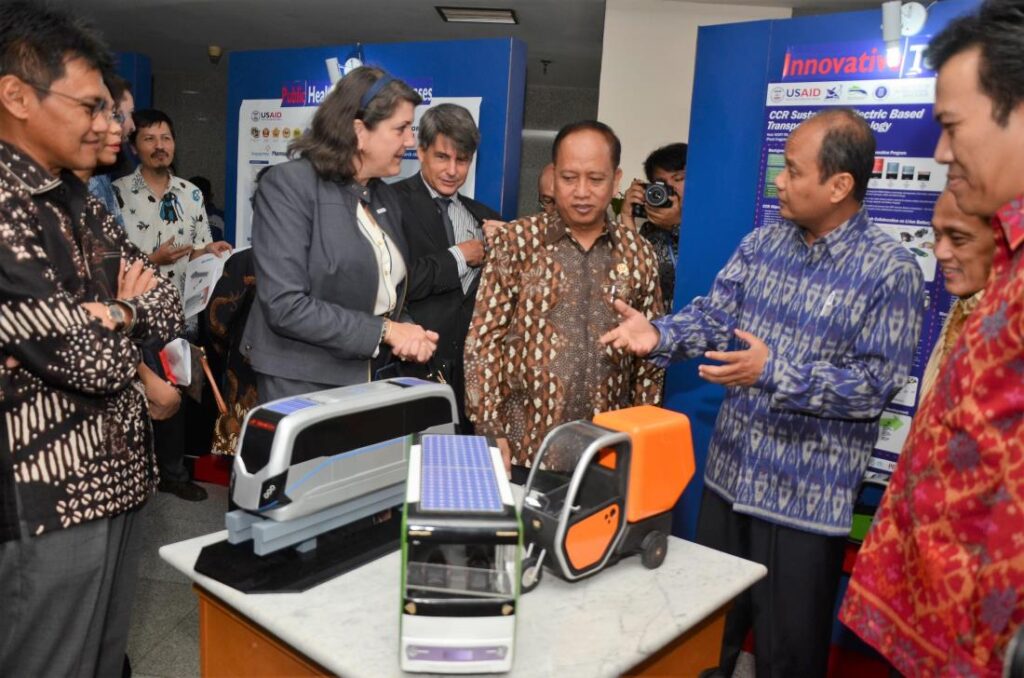
National Center for Sustainable Transportation Technology (NCSTT)
NCSTT, led by Institute Teknologi Bandung, seeks to develop advanced technologies for the next generation of electric vehicles in Indonesia through the creation of integrated transportation solutions that address technology, policy, infrastructure, and planning development. Through their consortium’s activities, NCSTT will develop electric vehicle systems and resolve critical issues in Reserved Energy Storage Systems (RESS), such as thermal management, safety, charging speed, and energy density/capacity within the battery system.
Public Health and Infectious Disease Research
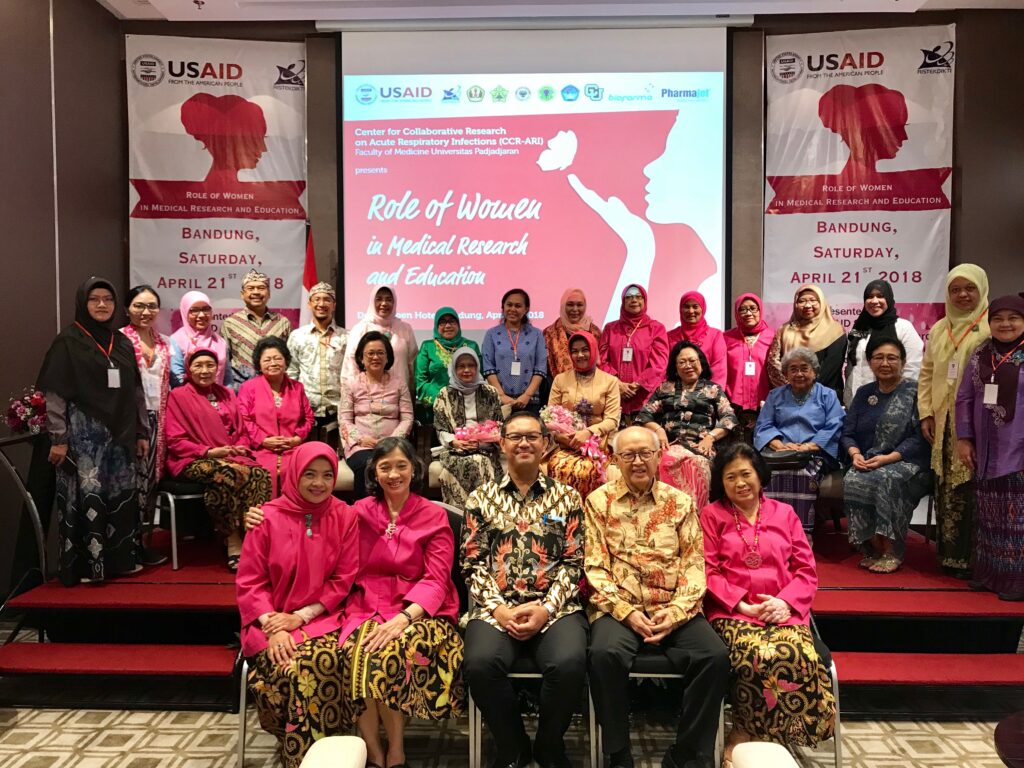
CCR for Acute Respiratory Infections (CCR ARI)
CCR ARI, led by Universitas Padjadjaran, seeks to enhance the capacity among Indonesian universities to perform quality and high-impact clinical research on disease prevention, advancement in medical biotechnology, and diagnostic technology. In doing so, CCR ARI supports Indonesia’s capacity to treat and prevent diseases, improving the quality-of-life for vulnerable populations.
Urban Planning & Development
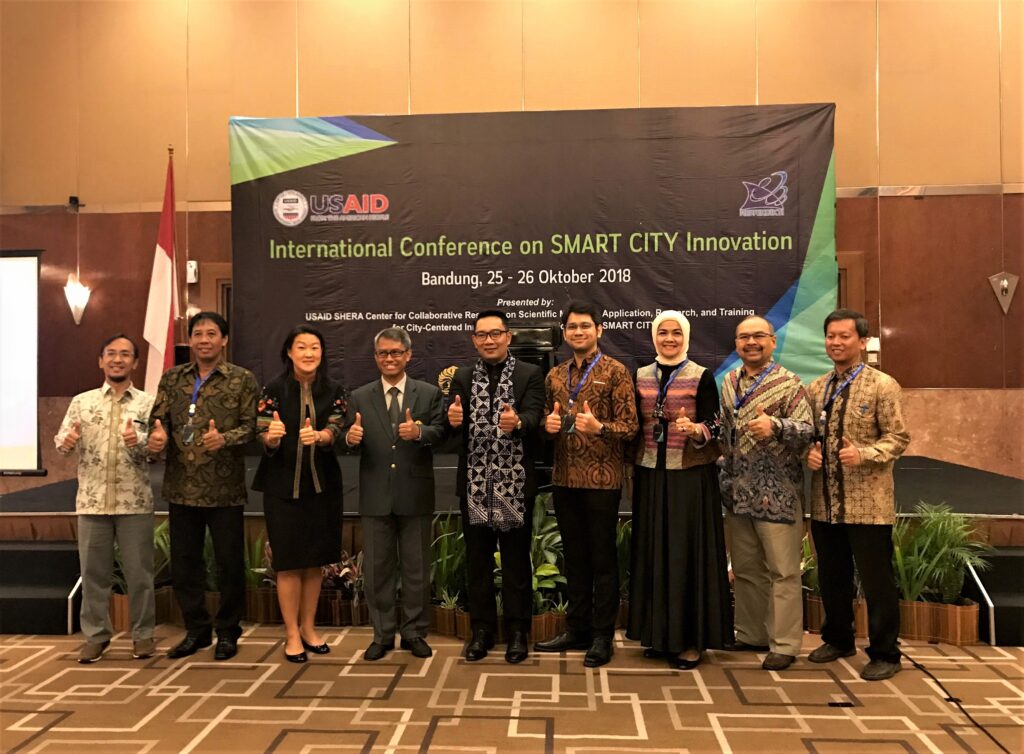
Scientific Modeling, Application, Research, & Training for City-Centered Innovation & Technology (SMART CITY)
SMART CITY, led by Universitas Indonesia, seeks to encourage research groups, technical laboratories and individual researchers to use interdisciplinary approaches in their work, collaborate on a global scale, and create scientific and technological innovations to address the challenges facing Indonesia’s urban centers, namely the slow adoption of green technology and IT in civil services, administration and governance; lacking and unreliable urban infrastructure; and a rapidly declining quality-of-life.